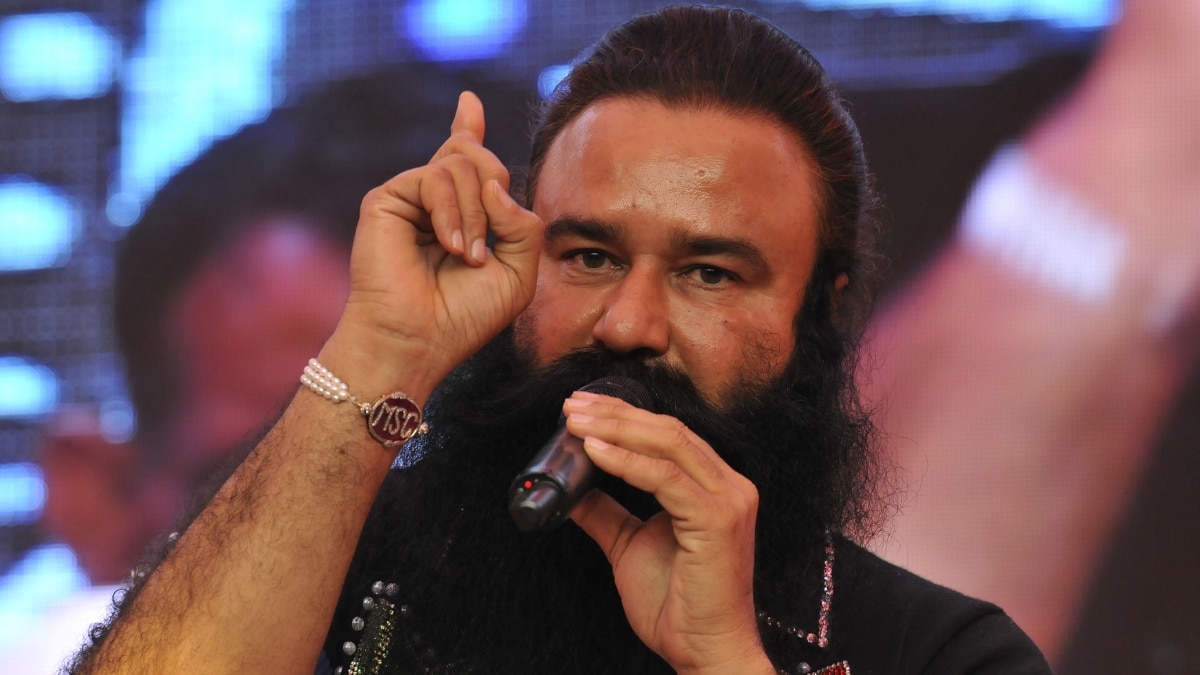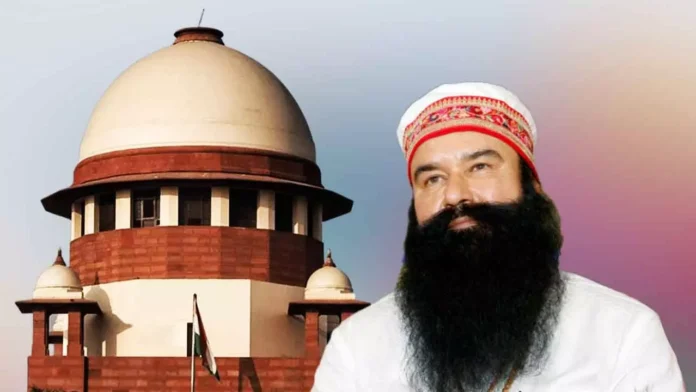The Supreme Court issued notice on January 3 regarding the Special Leave Petition (SLP) filed by the Central Bureau of Investigation (CBI), challenging the Punjab and Haryana High Court’s acquittal of Dera Sacha Sauda chief Gurmeet Ram Rahim Singh in the 2002 murder case of manager Ranjit Singh.
A bench comprising Chief Justice of India (CJI) Sanjiv Khanna and Justice Sanjay Kumar has tagged the matter with a pending appeal filed by the complainant, the father of the deceased, who also challenged the acquittal. The case will now be heard before the bench presided over by Justice Bela Trivedi.
Supreme Court Issues Notice In High-Profile Case
The case pertains to the murder of Ranjit Singh, a manager associated with Dera Sacha Sauda, who was shot dead in 2002 by four unidentified assailants. The murder allegedly stemmed from Gurmeet Ram Rahim Singh’s suspicion that Ranjit Singh was responsible for circulating an anonymous letter exposing instances of sexual exploitation of the Dera chief’s female followers.
The Solicitor General, Tushar Mehta, appearing for the CBI, pointed out to the bench that a prior notice had already been issued in the appeal filed by the complainant. Following this, the Supreme Court directed that the current matter be tagged with the SLP filed earlier and listed for hearing before Justice Bela Trivedi.

Background Of The 2002 Ranjit Singh Murder Case
The Punjab and Haryana High Court’s division bench of Justice Sureshwar Thakur and Justice Lalit Batra acquitted Gurmeet Ram Rahim Singh in May 2024, citing insufficient evidence to establish the motive behind the murder. The court stated that the prosecution’s case was “shrouded in doubts,” leading to the Dera chief’s acquittal.
The CBI, which took over the investigation in November 2023, contends that the High Court overlooked crucial evidence and failed to appreciate the gravity of the criminal conspiracy. The other convicts in the case—Avtar Singh, Krishan Lal, Jasbir Singh, and Sabdil Singh—continue to serve life sentences, while one accused, Inder Sain, passed away during the trial in 2020.
Previous Convictions Of Gurmeet Ram Rahim Singh
Gurmeet Ram Rahim Singh is currently serving a 20-year sentence for rape convictions and a life sentence for the murder of journalist Ram Chander Chhatrapati. His conviction under Sections 302 (murder) and 120B (criminal conspiracy) of the Indian Penal Code in the Ranjit Singh murder case added to his criminal record.
The Dera chief’s controversial history includes multiple allegations and convictions, raising serious concerns about his influence and the legal system’s ability to address crimes involving powerful individuals.

CBI’s Stand And The Way Forward
The CBI’s appeal in the Supreme Court challenges the acquittal on grounds of misappreciation of evidence by the High Court. The agency asserts that the evidence presented was sufficient to establish Ram Rahim’s role in the conspiracy and that the acquittal undermines the efforts to bring justice in a case involving severe allegations of criminal conspiracy and murder.
The Solicitor General emphasized the gravity of the case, urging the Supreme Court to review the High Court’s decision comprehensively. The Supreme Court’s notice signifies a critical step in reassessing the case and ensuring accountability.
Public Reaction And Implications Of The Supreme Court’s Notice
The Supreme Court’s notice has reignited public interest in the 2002 murder case, given Ram Rahim Singh’s history of high-profile crimes. The decision to tag the case with the complainant’s pending appeal ensures a consolidated hearing, which could bring clarity and resolution to the matter.
The development underscores the judiciary’s role in reviewing contentious decisions and addressing concerns of justice. With the matter now listed for hearing, all eyes are on the Supreme Court to decide the fate of one of India’s most controversial spiritual leaders.
As the case progresses, it highlights the importance of judicial scrutiny in upholding the rule of law and ensuring that powerful individuals are held accountable for their actions.

